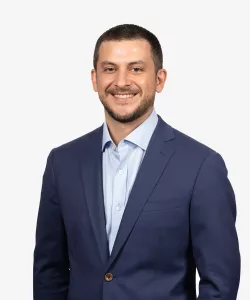Supreme Court to Hear Case on Trademark Tacking
The US Supreme Court recently agreed to consider a seemingly technical trademark question that could have a potentially big impact for brand owners. Specifically, the Supreme Court will consider whether a judge or the jury should decide if two trademarks are “legal equivalents” for the purposes of determining trademark priority. The case, Hana Financial, Inc., v. Hana Bank & Hana Financial Group, could impact the way businesses and the US Patent and Trademark Office determine and assess trademark priority.
The US Supreme Court recently agreed to consider a seemingly technical trademark question that could have a potentially big impact for brand owners. Specifically, the Supreme Court will consider whether a judge or the jury should decide if two trademarks are “legal equivalents” for the purposes of determining trademark priority. The case, Hana Financial, Inc., v. Hana Bank & Hana Financial Group, could impact the way businesses and the US Patent and Trademark Office determine and assess trademark priority.
Background
Generally, the first party to use a trademark in commerce owns it. This is known as “priority” in a trademark. However, trademark law also has a doctrine known as “tacking,” in which a party can “tack” the use of an older mark onto a new mark for the purposes of determining priority. Thus, if a party makes minor changes to a trademark, the party can continue to claim priority in the mark even if the current version of the mark differs slightly from the way the mark was originally used. In order for the tacking doctrine to apply, however, the marks must be so-called “legal equivalents.” In order to be considered legal equivalents, the marks must create the same commercial impression and cannot differ materially from one another.
The Current Case
In this case, Hana Financial claims that Hana Bank is infringing its federally-registered “HANA FINANCIAL” trademark by using the arguably, confusingly similar “HANA BANK” trademark. However, Hana Bank contends that, while it first used the HANA BANK mark several years after Hana Financial adopted its mark, Hana Bank actually has priority by virtue of the tacking doctrine. Specifically, Hana Bank owns a prior registration for the mark “;HANA OVERSEAS KOREAN CLUB,” which later became the trademark “HANA WORLD CENTER,” and eventually became the current HANA BANK mark. Hana Bank claims that the accumulated priority from use of the two prior versions of its mark now gives it priority in the HANA BANK mark.
At trial, the District Court submitted the tacking dispute to the jury, asking it to determine whether Hana Bank’s marks are “legal equivalents,” therefore entitling Hana Bank to priority in the mark. The jury sided with Hana Bank, and the Ninth Circuit affirmed. Consequently, despite having used the HANA FINANCIAL mark for seven years longer than Hana Bank has used the HANA BANK mark, the courts found that Hana Bank had priority based on its use of the earlier HANA-formative marks. Thus, Hana Financial appealed the case to the Supreme Court.
Circuit Split
One of the likely reasons the Supreme Court agreed to hear this case is that the federal Circuit Courts have disagreed over whether the determination that marks are “legal equivalents” is a question for the judge or the jury. Although the Ninth Circuit views it as a question of fact for the jury, the Sixth Circuit, the Federal Circuit, and the Trademark Trial and Appeal Board have all held that legal equivalency is a legal question for the judge.
So What?
A Supreme Court decision that finds legal equivalency to be a question of law for the judge would have a significant impact on how legal equivalency is determined. If legal equivalency is a question of law, trademark owners would generally not have the opportunity to prove the equivalence of their tacked trademarks through evidence such as consumer perception surveys. Rather, the Court would determine equivalency simply based upon the visual and aural characteristics of the marks.
A decision in Hana Financial is expected in the fall, and Arent Fox will continue to monitor the case for any developments. In the meantime, please contact Anthony V. Lupo, Amy E. Salomon, or Daniel B. Jasnow with questions.
Contacts
- Related Industries
- Related Practices
-
Read Time
4Minutes


